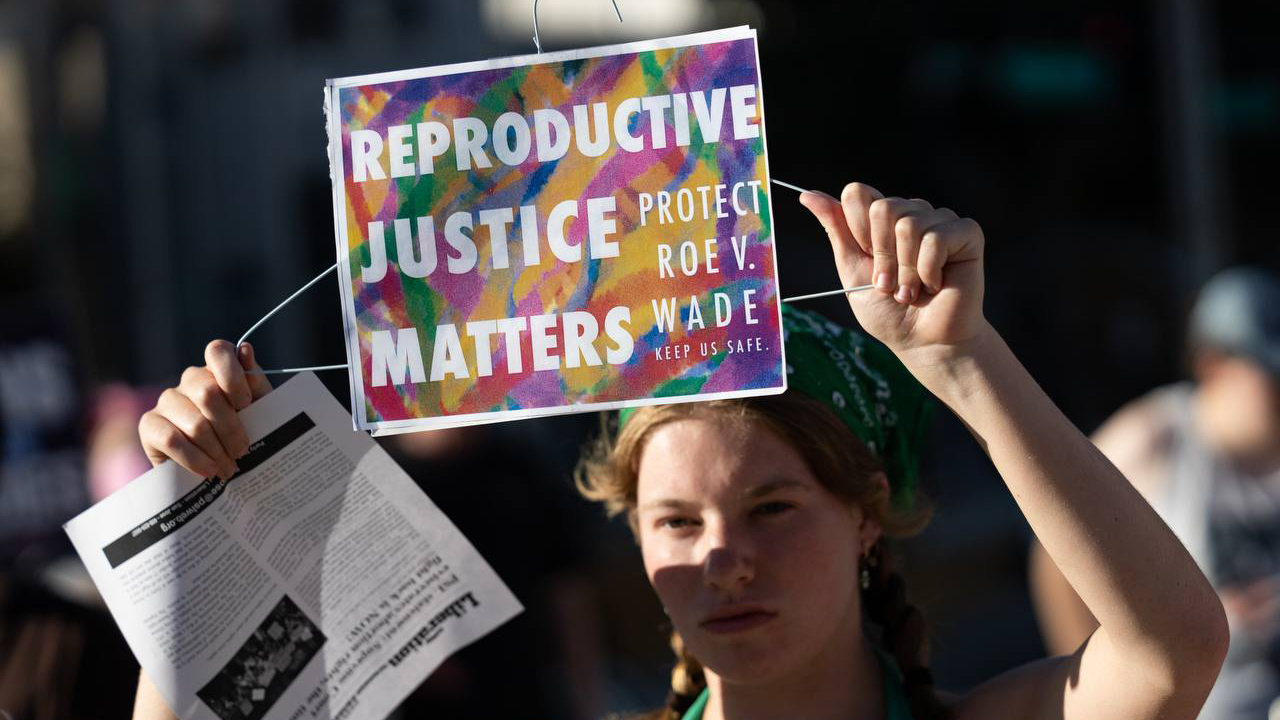On June 24, 2022, the US Supreme Court overturned protections for abortion rights nationwide, giving the green-light for states run by ultra-conservative politicians to implement draconian abortion bans. As a result, millions of women, concentrated in the poorest regions of the country, saw their reproductive rights taken away from them—systematically denied abortion even of cases of medical necessity or rape.
The US Supreme Court decision of Dobbs v. Jackson Women’s Health Organization sparked a nationwide movement for abortion rights, spearheaded by major feminist and left-wing organizations as well as working people pouring into the streets. The movement for reinstating and expanding abortion rights for millions of women across the country continues.
Immediately after Dobbs, 13 states, whose governments had been lying in wait for nationwide abortion rights to be overturned, immediately implemented “trigger bans” on abortion. Currently, 14 states have almost completely banned abortions, concentrated in the poorest regions of the country, such as the US South. A majority of women between the ages of 18 and 49 living below 200% of the federal poverty (defined as USD 46,060 per year for a family of three in 2022) live in states where abortions are almost completely banned or have severe limitations.
The number of people traveling out of state for abortion care doubled from 2020 to 2023, from one in ten to one in five women traveling to receive abortion care. Women who have lower incomes face enormous difficulties in finding money to travel to receive abortions outside of the states that restrict them, or taking time off work for such travel.
These restrictions uniquely impact incarcerated and formerly incarcerated women. According to research from the Prison Policy Initiative, only one in six women on probation or parole can access abortion care without needing permission to go out of state.
“This means officers get to decide whether the vast majority of 800,000 women on probation or parole can travel for abortion care,” writes the Prison Policy initiative. “Even when officers do approve interstate travel, the process of getting a ‘travel permit’ takes time, coordination, and sometimes even fees. This delays abortion care, increasing the risk of complications & often further limiting access.”
Many of the devastating health consequences of abortion bans, both those implemented before and those implemented after Dobbs, are now being revealed years later. In 2021, Texas implemented one of the most restrictive abortion bans at the time, SB 8. A recent study published in the Journal of the American Medical Association revealed that this law was linked to “unexpected increases in infant and neonatal deaths.” The study found that in 2021, 1,985 Texas infants died before their first birthday, but the following year, those deaths jumped to 2,240, a 12.9% increase while the country overall experienced a less than 2% increase.
The conservatives governing Texas, the architects of SB 8, have responded to the study. Texas Governor Greg Abbott defended the law, with spokesperson Andrew Mahaleris telling USA TODAY that the law intends “to save the innocent unborn, and now thousands of children have been given a chance at life.”
Amy O’Donnell, a spokesperson for Texas Alliance for Life, an anti-abortion rights group, told USA TODAY, “In Texas, we celebrate every unborn child’s life saved. We treasure the fact that our laws are protecting women’s lives… We don’t apologize for the fact that we don’t support discrimination against children facing disabilities or fatal diagnoses in or out of the womb. And that’s the line that we just believe should not be crossed.”
Biden and the Democratic Party have used the ultra-conservative, Republican push to ban abortion nationwide to campaign for votes in the November 2024 presidential elections. Today, Biden wrote on X, “In America today, women have fewer rights than their mothers and their grandmothers had because of my predecessor’s administration.” However, abortion rights advocates and the left broadly have pointed out that there are many steps that Biden could have taken, and can still take, to protect abortion rights.
Claudia De La Cruz and Karina Garcia, socialist candidates running against Biden for the presidency, have pointed out seven things that the Biden administration could have done in the wake of Dobbs: open abortion clinics on federally-owned land, declare a national public health emergency, fight attempts by states to criminalize travel for abortion access, grant federal employees leave to seek abortions, abolishing the filibuster, create an educational campaign on the use of abortion medication, and push to expand the Supreme Court to be filled with justices that favor reproductive rights.





